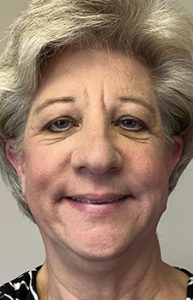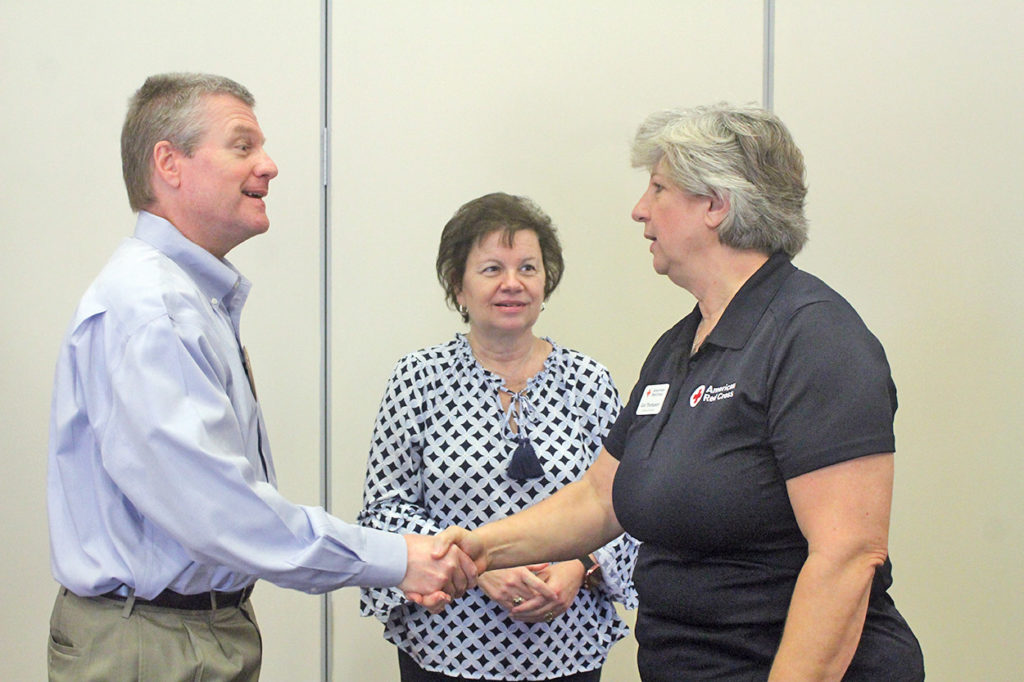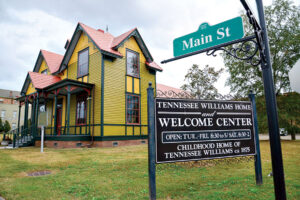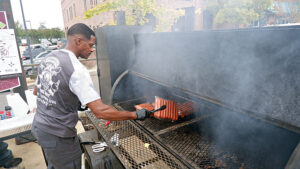Imagine a fire ravaging your home.
Everyone makes it out alive, but the structure and most of your possessions are lost. You are left wondering where you will go and what will happen next.
Then a hand reaches out and places itself on your shoulder. A voice says, “It’s going to be OK.”
This is the work of the American Red Cross, according to Gail Thompson, disaster program manager for the North Mississippi chapter.

“We want to make sure that we’re helping those that have been affected, and setting them up to at least get back to whatever normal was before this disaster occurred,” Thompson told members of the Exchange Club of Columbus on Thursday at Lion Hills Center.
There is a problem though. The types and numbers of disasters the group is responding to have increased. All the while, the organization as a whole, and especially the local chapter, is experiencing a serious shortage of volunteers.
Local volunteers are the first to respond to disasters and communicate the seriousness of the event to the local contact, Thompson said.
“We’ve moved into a time when we have multiple, overlapping disasters occurring, not only in this local area, but across the state of Mississippi and … nationwide,” she said. “We rapidly run out of people to respond, and so I could use more people, even if all they want to do is volunteer locally to Columbus or Lowndes County.”
In Fiscal Year 2023, which began in July, the Red Cross has worked 40 cases in the Golden Triangle, totaling $28,981 in aid. That included setting up shelters for major disasters, providing financial assistance to those affected and feeding them, as well as providing supplies and help with the cleanup.
In Lowndes County, Red Cross partners with local organizations such as United Way of Lowndes and Noxubee Counties and the Golden Triangle Regional Homeless Coalition.
She added the Mississippi/Alabama region is the most disaster-prone area in the country.
The most notable recent disaster was the Steens tornado, which moved through the area in November.
She said the Red Cross responded to the disaster and assessed 37 homes.
Of those, 26 had minor damage, 10 had major damage or were destroyed and one had no visible damage.
The group opened 14 cases and served 22 individuals.
The response to the disaster began locally.
“All disasters start and end locally,” Thompson said. “The Red Cross starts locally. (Local volunteers) will decide if it’s getting too big for them, or it’s growing, or they need more help, and they’ll identify that to (Red Cross) and we’ll respond appropriately from there.”
The disaster assessments by local volunteers are used to determine whether a national response is needed, or if it will be handled locally.
The group also helps with blood services in the United States, health and safety training and assisting the armed forces with services for military members and their families. It also offers international aid.
Currently, Thompson has about six active volunteers in Lowndes County.
Across her 37-county coverage area, she has about 24 active volunteers, less than one-third of what she would like.
“It would be nice to have a minimum of two disaster action team volunteers in every county,” Thompson said.
She said if people did not want to go out into the field as part of disaster relief teams, there are other duties that don’t require it.
There is also the option to only respond locally and not nationwide.
To volunteer, reach out to Thompson via email at [email protected] or visit redcross.org/volunteer.
You can help your community
Quality, in-depth journalism is essential to a healthy community. The Dispatch brings you the most complete reporting and insightful commentary in the Golden Triangle, but we need your help to continue our efforts. In the past week, our reporters have posted 49 articles to cdispatch.com. Please consider subscribing to our website for only $2.30 per week to help support local journalism and our community.







